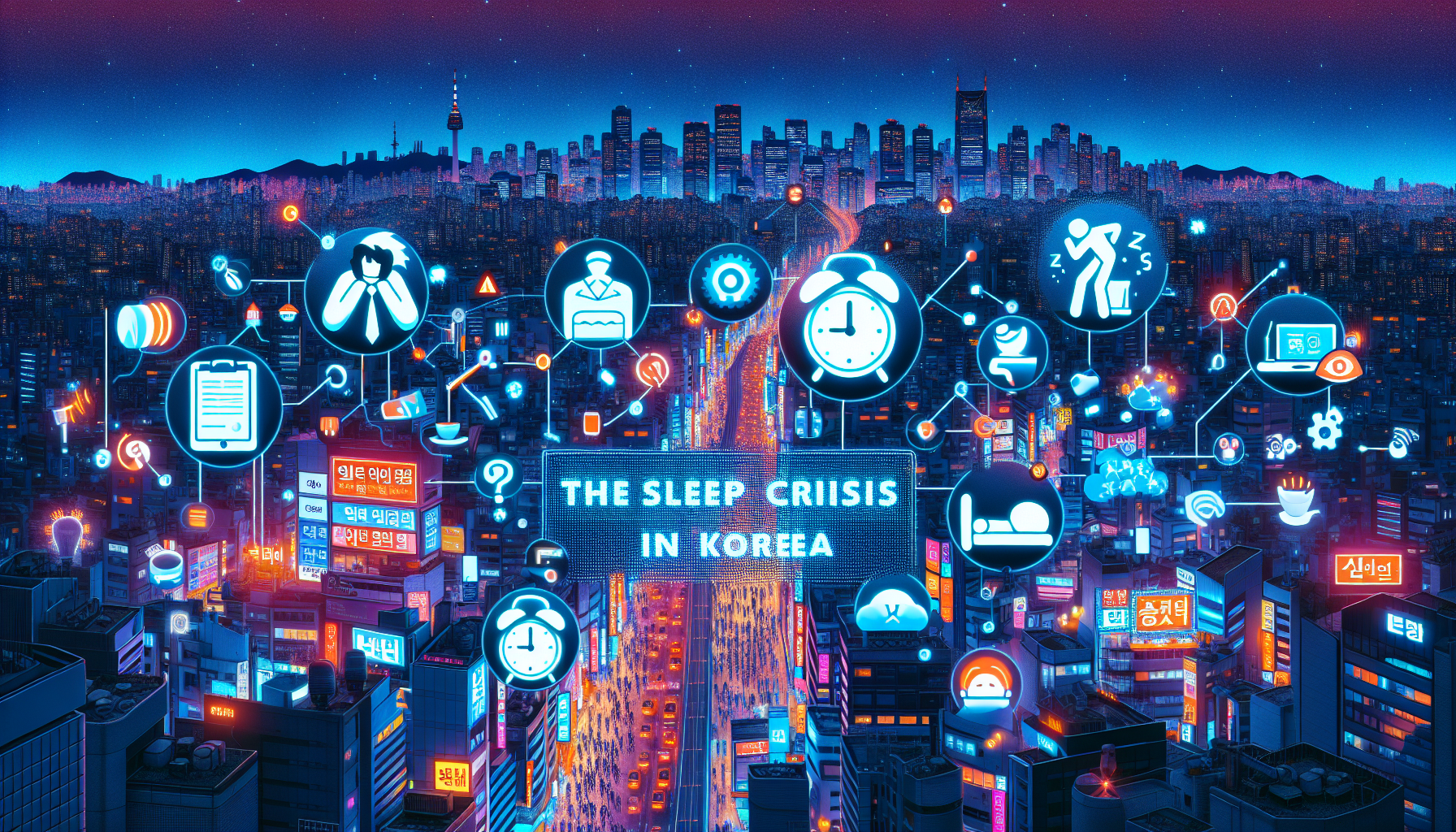Title: The Sleep Crisis in Korea: Understanding the Importance of a Good Night's Rest
Introduction
Did you know that sleep isn't just about rest, but a crucial pillar of good health? While many of us may overlook this, recent findings from Korea paint a startling picture of how sleep deprivation affects individuals and society. Let's explore why Koreans are tossing and turning, and what it means for their health and economy.
Average Sleep Time Among Koreans Falls Short
In today's fast-paced society, it might not be surprising that sleep is often sacrificed. But in Korea, the average person sleeps less than seven hours a night—6 hours and 58 minutes, to be exact. Not only is this 18% less than the average sleep time reported by other OECD countries, but it also falls short of the recommended seven hours for adults. This chronic sleep deprivation can lead to health risks and daily struggles for many.
- Average bedtime is around 11:03 PM, with wake-up at 6:06 AM.
- Only a meager 7% report getting a good night's sleep regularly.
- The dissatisfaction with sleep quality in Korea is significant, noting factors such as stress, physical fatigue, and noise as the most common disrupters.
The Impact of Sleep Deprivation on Health
Sleep is essential for maintaining our physical and mental health. When we skimp on sleep, we open the door to numerous health issues:
- Immune system weakening, with an increased risk of colds by threefold.
- Greater susceptibility to obesity and diabetes.
- Risk enhancement for cardiovascular diseases such as heart disease and strokes.
Moreover, lack of sleep significantly affects mental well-being, contributing to symptoms of anxiety and depression. In Korea, approximately 4.5% of men and 3.2% of women suffer from obstructive sleep apnea (OSA), which further deteriorates sleep quality.
Economic Consequences of Sleep Loss
The economic impact of drowsy days is not to be underestimated. Productivity takes a serious hit, and with it, the broader economy suffers:
- Reduced worker productivity, with potential halving of efficiency.
- Increased healthcare costs and more sick days add pressure on businesses.
In terms of financial figures, the US loses about $411 billion annually due to sleep-related issues, while Korea faces estimates as high as 11 trillion won in economic losses each year. This shows a clear correlation between sleep, productivity, and economic health.
Growing Awareness and the Need for Policy Intervention
There's a consensus among experts that sleep health isn't getting the attention it deserves. Governments and institutions thus face the challenge of increasing awareness and taking action:
- Growing sleep health education in schools and corporations.
- Implementing regular assessments for shift workers and key labor forces.
- Expanding health insurance coverage for sleep disorders and treatments.
Organizations and society in general must toss aside the belief that sleep is merely personal downtime. It's a social and public health issue demanding collaborative solutions.
Practical Steps to Improve Sleep Habits
While policy changes can aid long term, individuals can adopt strategies to improve their sleep now:
- Establish consistent sleep and wake times, reducing screen time before bed.
- Use blackout curtains and consider ambient noise like wave or creek sounds to create a conducive sleep environment.
- Limit caffeine and alcohol intake, and try stress-reducing practices such as meditation or yoga.
Shin Won-chul, President of the Korean Sleep Research Society, emphasizes that "sleep deprivation is not just a personal issue but a societal concern." A healthier approach to sleep can elevate our quality of life and even boost economic prospects.
Conclusion
As the global spotlight shines on the importance of sleep this World Sleep Day, it's a wake-up call to prioritize our sleeping hours. By embracing better sleep habits and supporting public policies that enhance sleep health, we can all enjoy a more productive, healthier, and happier life. So, are you ready to make a change for better sleep tonight? Let us know your thoughts or habits in improving sleep in the comments!

